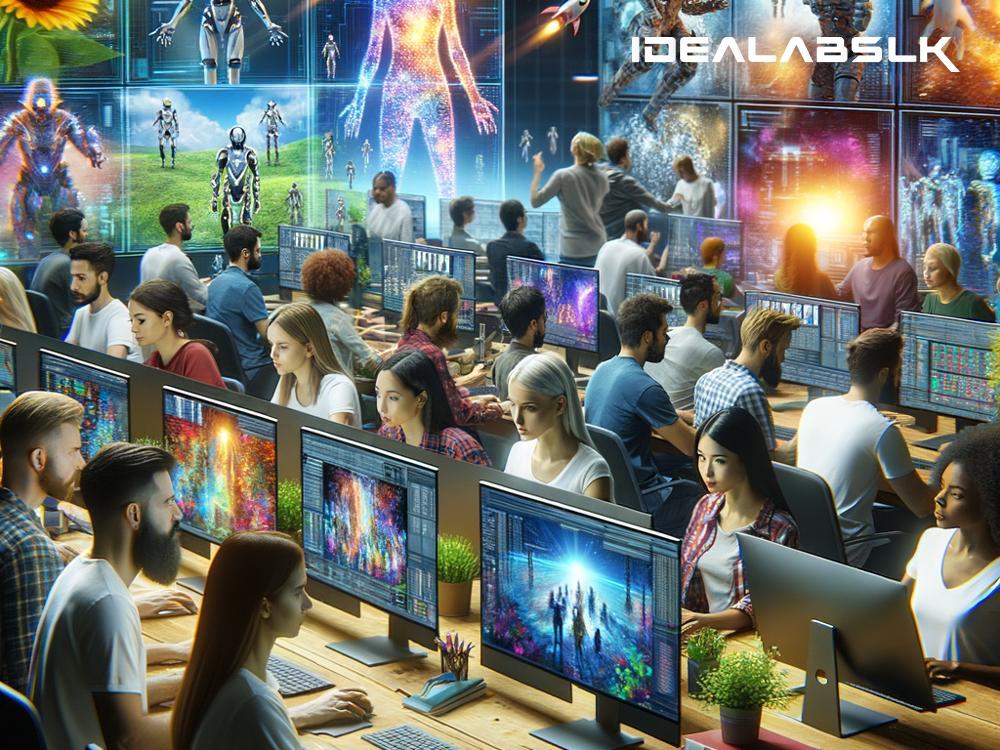How AI-Powered Game Development Tools Will Speed Up Production in 2025
In the fast-paced world we live in, technology is constantly evolving, making our lives more exciting and convenient. One of the most fascinating advancements we're witnessing is in the realm of Artificial Intelligence (AI), particularly in the video game industry. By 2025, AI-powered game development tools are set to revolutionize the way games are made, speeding up production dramatically. Let's dive into how this futuristic technology is gearing up to change the game development landscape.
Welcome to the Future of Game Development
Game development has always been a labor of love, requiring months or even years to bring a virtual world to life. From designing intricate landscapes to animating characters, every detail must be meticulously crafted. However, with the advent of AI-powered tools, this time-consuming process is about to get a major makeover.
The Magic of AI in Game Design
Imagine creating vast, detailed game environments in mere hours instead of weeks. AI algorithms can now analyze and understand creative patterns, assisting developers in generating complex game worlds that would traditionally take an immense amount of time to design manually. These smart tools can automatically produce landscapes, buildings, and even entire cities, adapting to the specific style of the game.
Moreover, character design and animation are set to become seamless processes. AI can help in crafting detailed character models, bringing them to life with realistic movements and expressions that feel more natural than ever before. This not only speeds up the development process but also enhances the quality and depth of the characters themselves.
Storytelling and Content Creation
A compelling storyline is at the heart of many great games. AI tools are stepping in to aid developers with narrative design by suggesting plot developments, dialogue, and dynamic story arcs. This doesn't mean AI will replace human creativity but rather augment it, offering new perspectives and ideas to enrich the storytelling process.
In terms of content creation, AI can generate quests, puzzles, and challenges tailored to the player's style and progress. This ensures a dynamic and engaging gaming experience, reducing the workload on developers to create vast amounts of content manually.
Testing and Polishing Games Made Easier
Game testing is another crucial phase where AI is set to make significant strides. Identifying bugs and glitches can be a tedious process. AI-powered tools can swiftly navigate through the game, playing thousands of scenarios in a fraction of the time it would take human testers. This not only speeds up the polishing phase but also results in a smoother, more reliable gaming experience for players.
Customization and Learning
AI isn't just transforming how games are developed; it's also learning from the players. By analyzing how individuals play games, AI can adapt and customize the gaming experience in real-time, continually updating and improving games even after they've been released. This ongoing learning process means games can evolve based on player feedback, keeping the content fresh and engaging.
The Impact on Small Studios and Indie Developers
One of the most exciting aspects of AI-powered game development tools is their potential to democratize the game development process. Small studios and indie developers, who previously might have been limited by resources, can now compete with larger companies. AI brings high-quality game development within reach, leveling the playing field and likely leading to a surge in creativity and innovation within the industry.
Embracing the New Era
As we look towards 2025, the fusion of AI and game development heralds a new era of creativity, efficiency, and possibility. With AI-powered tools handling the time-consuming aspects of game creation, developers can focus more on the creative and innovative aspects. This shift promises not only to speed up production but also to elevate the quality and depth of the gaming experience.
In conclusion, the integration of AI into game development is a game-changer, paving the way for a future where stunning, complex, and engaging virtual worlds are brought to life faster than ever. As these technologies continue to evolve, one thing is clear: the possibilities are as limitless as our imaginations. Welcome to the future of game development, a future where dreams and reality converge to create extraordinary gaming experiences for everyone.

